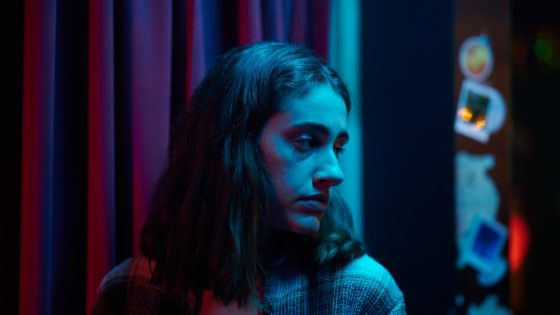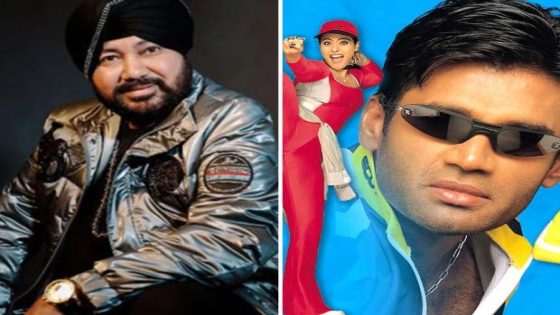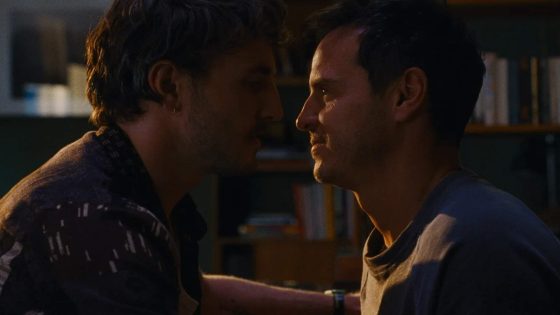During her time in journalism school, writer-director Ally Pankiw discovered documentary studies and broadcast news, and immediately fell in love with video editing and production.
Although she didn’t attend traditional film school, she taught herself the basics of Final Draft after graduating and started writing. After directing Season 1 of Netflix’s “Feel Good,” the “Joan Is Awful” episode of “Black Mirror” and more, Pankiw finally got funding for her first feature film: “I Used to Be Funny,” starring “Shiva Baby” breakout Rachel Sennott.
The film is in select theaters via Utopia and was released digitally on June 18. Sennott stars as Sam, a stand-up comedian struggling with PTSD after being sexually assaulted. She tries to decide whether or not to look for Brooke (Olga Petsa), a missing teenage girl she used to nanny. The story swaps between past and present, where Sam navigates her trauma.
Pankiw tells Variety that the script for the film was thematically tied to her life and the women around her. She wanted to explore recovering and healing in a different way than the other revenge or melodramatic counterparts in pop culture.
“I didn’t see anything that was just sort of about the two steps forward and one step back cycle of recovery, and I wanted to speak to that,” Pankiw says.
Sennott and Petsa’s characters also share a unique, intergenerational bond throughout the film — an important relationship that Pankiw says she hoped to speak to. She says her own big sister, teachers she had over the years and counselors from ballet camp that she had a crush on inspired the dynamic between Sam and Brooke.
“As we get older as women, there’s always this burden on us to make the world better for younger generations of women,” Pankiw says. “And obviously that can be a pleasure to do, but it’s also tough work. I think that’s an experience that everyone has been on one side of. That sort of mentor-mentee, passing the tampon under the bathroom stall door to be like ‘Here, I’ll teach you a little bit about the world.’ I think everyone can tap into that memory.”
Finding a young actor to play the role of Brooke was one of the toughest parts of the production process, and Pankiw says Petsa was like a little miracle. She says Sennott and Petsa had such natural chemistry on set and that when they did a chemistry read with Sennott against other young actors, there was something special about that pair together.
“Rachel did become sort of a bit of a big sister to Olga on set,” Pankiw says, “We just captured the sweet, little friendship that was developing between them that was sort of also happening naturally.”
On finding the blend between comedy and drama, especially with a topic like sexual assault, Pankiw says it feels more honest to talk about recovery with a combination of the two.
“I think all my work sort of does walk that line between the devastating and the absurd,” Pankiw says. “There really isn’t a single day in a life that is pure tragedy or pure comedy, everything is a blend and that’s just how I think about the world.”
Pankiw describes directing Sennott as “a dream,” saying that she was incredibly skilled and effortless but with a ton of effort behind her acting. When she saw her on the Comedy Central web series “Ayo and Rachel Are Single” with Ayo Edebiri, she says she admired how well Sennott did on camera.
Then, after seeing 2020’s “Shiva Baby” and Sennott’s standup, Pankiw knew she was the one.
“I don’t know how she does it, she’s magic,” Pankiw says of Sennott. “She made things feel like new every time, which I do think is a trait of comedic actors. There’s just something very present and real and immediate and even through take after take after take.”
While Pankiw says some people view the script as a reaction to the #MeToo movement, she says topics of sexual assault unfortunately have always been relevant and timely. Even though she wrote the film over a decade ago, the heart of the film and the themes of assault and recovery never changed throughout the editing process.
She hopes “I Used to Be Funny” challenges viewers to stick around to find out who people were before certain aspects of their personality were taken away from them via trauma. She describes the film as recognizing the loss we suffer societally and culturally when young women aren’t protected from assault.
“I think we often as a society hold victims to a really, really high standard,” Pankiw says. “I challenge the audience to find empathy for Sam before they know the full vibrant person that she was before. Because you don’t always get to meet that version of a young woman after something terrible has happened to them.”
Source Agencies



